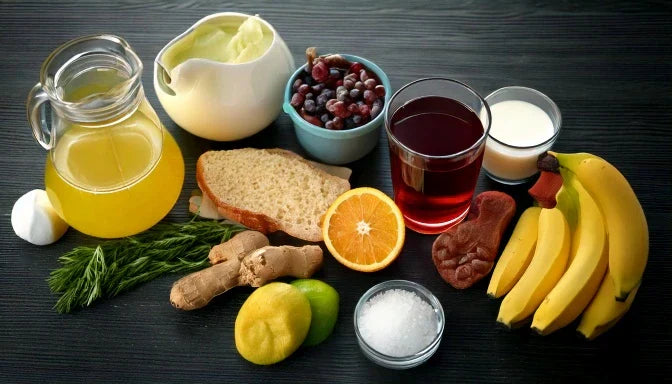Tooth enamel, the outermost layer of the teeth, is strong and essential for protecting your teeth from damage. Various foods, drinks, and lifestyle habits can erode the enamel of the teeth over time, leading to sensitivity, discolouration, and cavities.
We should always be aware of the foods that cause enamel erosion so that we can limit our consumption. This article explores the foods that erode tooth enamel and how to mitigate the effects.
What is Tooth Enamel and Its Importance?
Tooth enamel is designed to shield teeth from daily wear and tear, chewing, and exposure to acidic foods.
Despite its durability, enamel cannot regenerate once damaged because it has no living cells.
Maintaining its integrity is critical for protecting the inner layers of your teeth and ensuring long-term oral health. Learn more about enamel remineralization here.
Common Causes of Enamel Erosion
Enamel erosion occurs due to a combination of dietary habits, poor oral hygiene, and certain health conditions. Identifying what foods cause enamel erosion is the first step in protecting your teeth.
- Chewing ice damages teeth: Chewing ice can chip or crack enamel, weakening its protective structure. The habit of chewing ice damages teeth, and continuous chewing can cause serious damage.
- Acidic foods: Acidic foods that damage teeth are those that have high citric acid in them. Frequent consumption of these lowers the pH in your mouth, softening the enamel.
- Poor oral hygiene habits: Brushing too soon after consuming acidic foods can scrub away softened enamel. Learn the best time to brush your teeth here.
- Health conditions: Health conditions like dry mouth reduce saliva production. Saliva neutralises acids, so reduced saliva increases erosion risk.
Foods That Harm Enamel
While many foods are nutritious, certain foods erode tooth enamel due to the presence of acidic and sugary substances. Some of them are:
- Citrus fruits: Citrus fruits such as oranges and lemons contain high levels of citric acid, which can weaken the enamel over time.
- Carbonated Drinks: Carbonated drinks do erode tooth enamel. Soda and sparkling water have acidic components that erode enamel, even if they are sugar-free.
- Sugary Treats: Bacteria in the mouth feed on sugar and produce acids that erode enamel. See how you can enjoy sweet foods without harming your teeth.
- Pickles and Vinegar: Pickles and vinegar-based foods have high-level acidic components and ultimately erode the enamel.
- Lemon Juice: Lemon juice has a high pH level. So, you can drink lemon water without damaging teeth by diluting it with more water to have less impact.
- Hard Substances: Chewing on ice or hard candies can physically damage enamel through chipping and cracking.
The Role of pH in Food and Enamel Erosion
The pH of foods and beverages significantly impacts enamel health. Foods with a pH below 5.5 are considered acidic and can weaken enamel.
- Lemon Juice: With a pH of around 2, it is highly erosive.
- Carbonated Drinks: These beverages often have a pH of 3 or lower, softening the enamel over time.
Neutral or alkaline foods, such as dairy products, can help neutralize the acidity.
How to Protect Your Enamel While Enjoying These Foods
Simple adjustments in food can make a big difference. Some of them are:
- Rinse after eating: Drinking water or rinsing your mouth with mouthwash after consuming acidic foods helps neutralize the acids.
- Use a straw: This limits the contact between acidic drinks and your teeth.
- Pair foods wisely: Combine acidic foods with enamel-friendly options like dairy-based products.
-
Wait before brushing: After eating acidic foods, wait 30 minutes to an hour before brushing to avoid scrubbing and softening enamel. Brush with a fluoride-based toothpaste for better results.

Conclusion
Protecting your enamel requires balancing your diet with proper oral care habits. By limiting exposure to acidic foods and drinks and adopting enamel-friendly practices, you can maintain a healthy, vibrant smile.
Frequently Asked Questions
Q1. Is it bad to chew ice every day?
Answer- Yes, we can say that chewing ice can damage teeth. Chewing ice regularly can lead to chipped teeth, cracked enamel, and increased sensitivity. The hard texture of ice poses a significant risk to enamel integrity.
Q2. How do you fix your teeth after chewing ice?
Answer- Damaged enamel cannot be regenerated, but a dentist can suggest some solutions like bonding and fillings or crowns to repair chips or cracks caused by chewing ice.
Q3. Does ice water damage teeth?
Answer- Drinking ice water does not harm enamel, but exposing teeth to sudden temperature changes repeatedly might lead to sensitivity over time.
Q4. How to drink lemon water without ruining teeth?
Answer- To minimize damage from lemon water, you can dilute lemon juice with plenty of water, use a straw to limit contact with teeth, rinse your mouth with plain water, and avoid brushing immediately.






